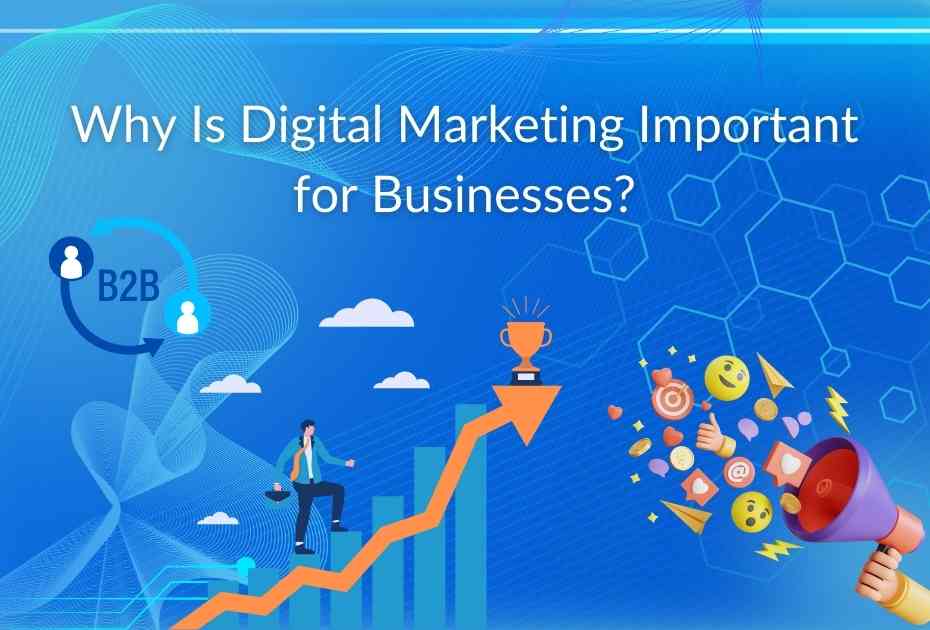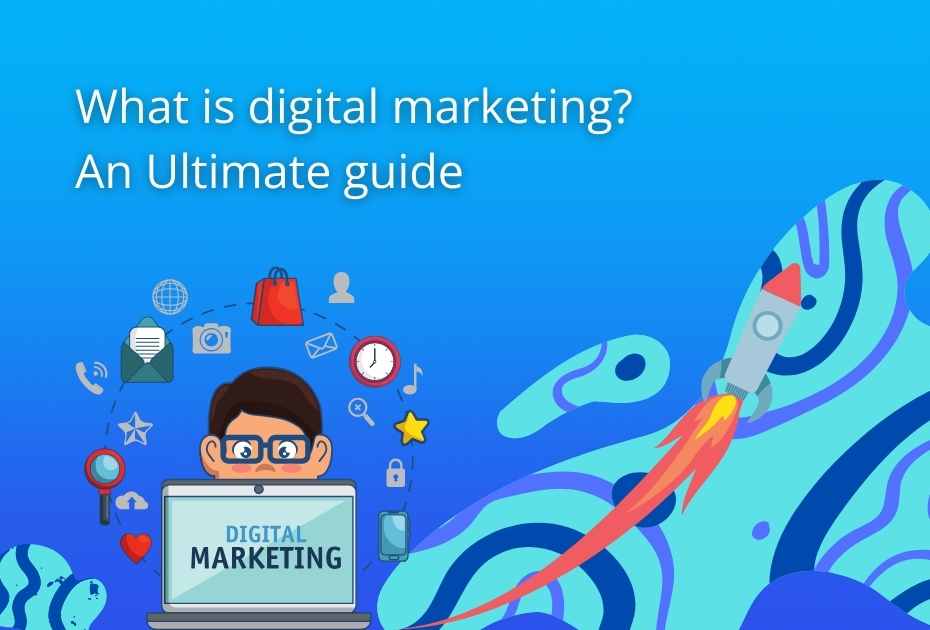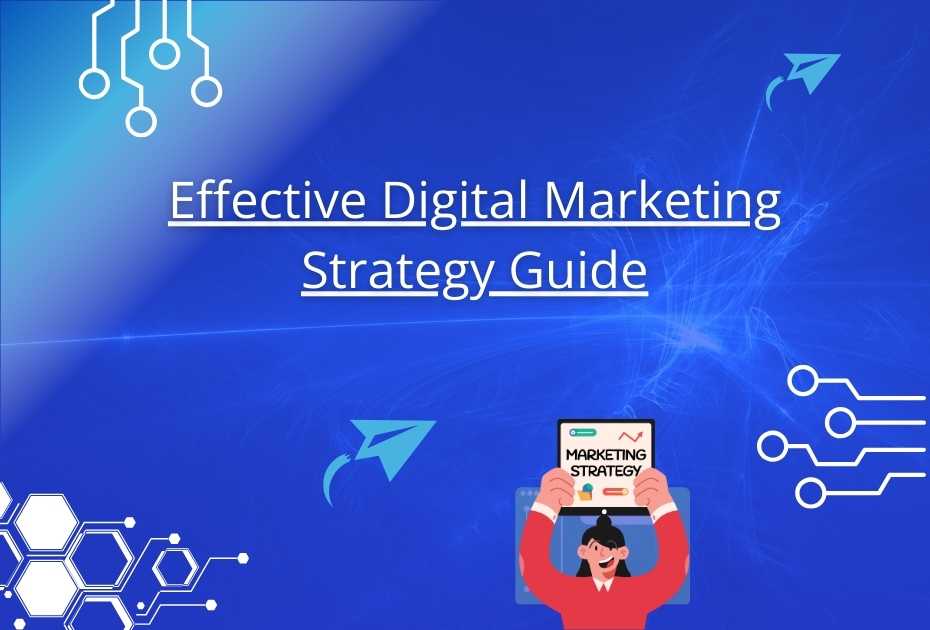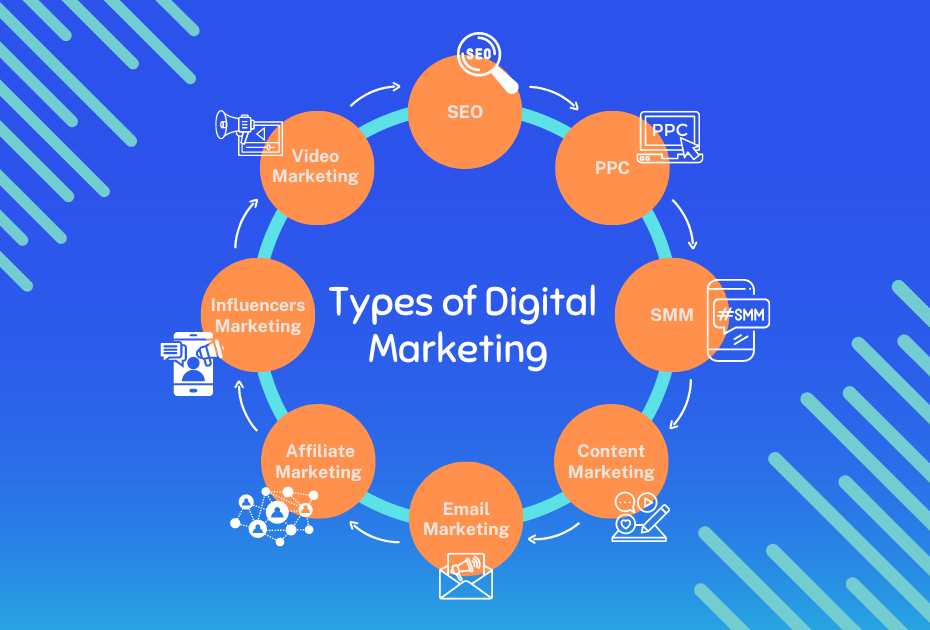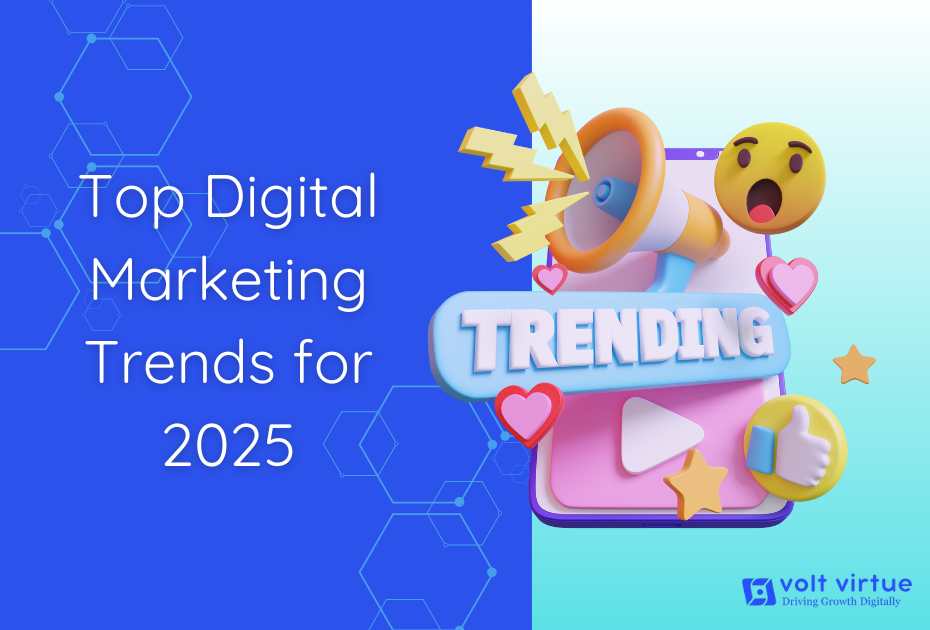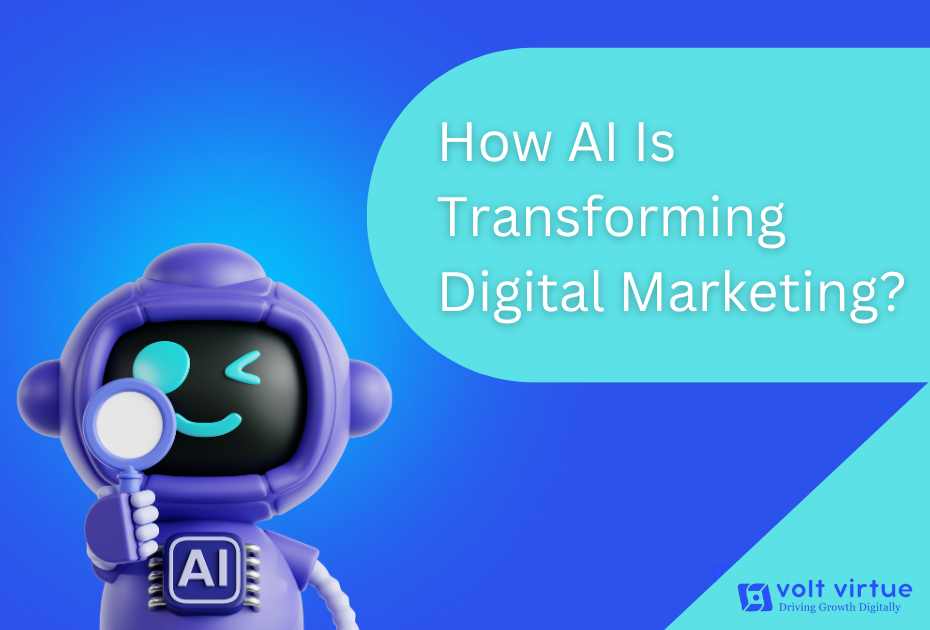
Over the past decade, digital marketing has evolved significantly, with artificial intelligence (AI) emerging as one of the most influential forces driving this transformation. Once confined to the realm of science fiction, AI is now an integral part of modern business operations. It plays a pivotal role in automating repetitive tasks, delivering hyper-personalized customer experiences, and enabling data-driven decision-making. Artificial Intelligence (AI) has become a game-changer in digital marketing, revolutionizing how businesses promote their products and services. By enhancing audience targeting and optimizing marketing strategies, AI enables companies to improve efficiency and maximize ROI. In this blog post, we’ll explore how AI is transforming digital marketing, from delivering personalized user experiences to automating key marketing processes.
What is Artificial Intelligence (AI)?
Artificial Intelligence (AI) is a branch of computer science dedicated to developing intelligent machines capable of mimicking human cognition. AI research focuses on designing algorithms that can process and respond to natural language, images, and various other inputs with accuracy and efficiency.
What is AI in Digital Marketing?
AI in digital marketing leverages artificial intelligence technologies such as data analytics, natural language processing, and machine learning to automate marketing tasks, enhance decision-making, and generate valuable business insights.
One of AI’s biggest advantages is its ability to analyze vast amounts of data quickly, providing deep insights into customer behaviors and preferences. Businesses can use this data to deliver personalized experiences, tailoring content, recommendations, and marketing strategies based on user interactions. Moreover, AI continuously learns and adapts, improving its performance over time.
For marketers, AI presents a powerful opportunity to create more effective and personalized campaigns. It enables brands to deliver relevant content triggered by user actions—whether through a website, ad engagement, or branded messaging—enhancing customer experience and driving better results.
However, AI is not a replacement for human creativity and strategic thinking. Instead, it serves as a tool to enhance marketing efforts, requiring human expertise to guide its application effectively. There is a need for human writers, creators, experts to think in a strategic way.
AI in Digital Marketing Analysis
With the exponential growth of online data, traditional marketing analysis methods are struggling to keep up. AI has emerged as a game-changer, revolutionizing how marketers analyze and optimize campaigns by processing vast amounts of data at unprecedented speed.
AI refers to the simulation of human intelligence in computer systems, enabling them to learn from data, recognize patterns, and make decisions without constant human intervention. In digital marketing analysis, AI-driven algorithms can sift through massive datasets, uncovering valuable insights that would be nearly impossible for a human analyst to identify manually.
Here are two key areas where AI is transforming digital marketing analysis:
- Data Processing and Management
Managing and analyzing large volumes of marketing data has traditionally been time-consuming and resource-intensive. AI-powered tools, such as machine learning (ML), natural language processing (NLP), and deep learning (DL), allow marketers to process massive datasets in minutes, extracting actionable insights with minimal effort. - Customer Insights
Understanding consumer behavior is the foundation of effective marketing strategies. AI enables marketers to analyze customer data efficiently, identifying trends, preferences, and purchasing patterns that drive more personalized and targeted campaigns.
Integrating AI into digital marketing enables faster data-driven decisions, improved campaigns, and deeper audience insights, keeping businesses competitive.
How AI is Transforming Digital Marketing?
AI is transforming digital marketing by enabling businesses to collect, analyze, and act on data with speed and precision. As consumer data continues to grow, AI’s ability to make data-driven decisions efficiently is becoming increasingly essential.
Here are some key ways AI is transforming digital marketing:
Personalization at Scale
AI is revolutionizing personalization by leveraging machine learning algorithms to analyze vast datasets and understand consumer behavior in real time. This allows marketers to deliver highly tailored content, product recommendations, and advertising to individual users at scale.
AI-powered tools such as chatbots and recommendation engines enhance customer interactions by providing personalized experiences, increasing engagement and satisfaction. For example, brands using AI-driven email personalization have reported higher open rates and improved conversion rates, demonstrating the power of AI in creating more relevant and impactful marketing campaigns.
Automated Content Creation
In digital marketing, content remains king, and AI is transforming how it’s created. AI-powered tools can generate blog posts, social media updates, and ad copies with remarkable efficiency, streamlining the content creation process.
AI-powered NLP ensures grammatically sound content that aligns with a brand’s tone and style. AI automation handles repetitive tasks, allowing marketers to focus on strategy and creativity for faster, scalable, and data-driven content.
Enhanced A/B Testing with AI
AI is revolutionizing A/B testing by making the process faster, more efficient, and data-driven. Traditionally, marketers test different campaign elements—such as web copy, design, and calls to action—through manual analysis. AI, however, leverages advanced algorithms to automate and optimize A/B testing, analyzing multiple variables simultaneously to determine the most effective combinations.
One of AI’s biggest advantages is its ability to learn and improve over time. More tests make AI smarter, providing deeper insights and refining marketing strategies for better results.
Enhanced Data Analysis
One of the most profound impacts of AI in digital marketing is its ability to process and interpret vast datasets with unmatched efficiency. AI tools quickly identify trends and patterns in customer data, enabling marketers to make data-driven decisions. This level of analysis enhances targeting and segmentation strategies, ensuring marketing efforts reach the most responsive and relevant audiences.
Chatbots and Conversational Marketing
AI-powered chatbots have become essential tools for brands looking to enhance customer interactions. These intelligent bots engage in natural, context-aware conversations, providing instant support, answering queries, and even assisting with sales. This not only improves customer satisfaction but also frees up human resources for more complex tasks, increasing operational efficiency.
Enhanced Ad Targeting and Optimization
AI is revolutionizing digital advertising by analyzing user behavior and preferences in real time. Machine learning algorithms continuously optimize ad placements, ensuring that campaigns reach the right audience at the most opportune moments. This level of precision improves conversion rates, maximizes ROI, and enables marketers to refine targeting parameters while optimizing budget allocation.
Automation of Routine Tasks
AI excels in automating routine and repetitive tasks, freeing up valuable time for marketers to focus on more strategic initiatives. In digital marketing, AI can handle everything from basic content creation to complex campaign management tasks. This includes optimizing ad bids in real time, managing email campaigns, and generating social media content. AI automation saves time, reduces errors, and lets marketers focus on creativity and strategy.
Improved Customer Service
AI-powered chatbots and virtual assistants have become essential tools for providing 24/7 customer service across digital platforms. These tools can handle inquiries, resolve issues, and provide information without requiring human intervention, enhancing customer service and engagement. As they learn from every interaction, they continuously improve their ability to meet customer needs more effectively.
Predictive Analytics
Predictive analytics powered by AI is another area transforming digital marketing. By analyzing historical data, AI helps marketers anticipate future trends, customer behaviors, and needs. This foresight enables proactive adjustments to campaigns, more efficient inventory management for e-commerce, and targeted marketing messages. The result is improved sales, stronger customer loyalty, and a more tailored customer experience.
Voice Search Optimization
With the rise of smart speakers and virtual assistants, voice search is becoming a dominant force in digital marketing. AI-driven voice recognition technology helps brands optimize their content for conversational voice search queries. Marketers are adapting their SEO strategies to ensure visibility in voice searches, making their brands more accessible to users relying on voice-activated devices.
What are the Pros of AI in Digital Marketing?
- Boosts Productivity: AI tools automate repetitive tasks, freeing up marketers to concentrate on strategy and creativity, which in turn boosts overall productivity and efficiency.
- Drives Efficiency: AI automates tasks such as email marketing, ad placements, and customer segmentation, significantly saving marketers time and effort.
- Create and Optimize Content: Automate content creation to generate high-quality content at scale across all online channels, ensuring consistent messaging and engagement.
- Predictive Analysis: Utilize historical data to forecast consumer behavior and market trends, enabling more accurate and effective planning for future campaigns.
- Automate Tasks: Streamline routine tasks such as data analysis, customer segmentation, email sorting, data entry, and basic reporting, saving time and increasing operational efficiency.
What are the Cons of AI in Digital Marketing?
- Complexity: AI tools require technical expertise to implement and manage effectively, making setup and ongoing management a challenge for some organizations.
- Over-Reliance: Over-dependence on automation can diminish the human touch, which is essential for maintaining brand authenticity and building meaningful customer relationships.
- Privacy Concerns: The collection and processing of large volumes of user data raise important questions regarding data privacy and the ethical use of information.
- Accuracy Issues: AI is not foolproof. Errors in data, algorithms, or content generation can lead to inaccurate insights, potentially undermining marketing strategies and decisions.
The Future of Digital Marketing:
As AI technology becomes more integrated into digital marketing, it’s clear that AI is here to stay. However, rather than replacing human expertise, AI should be seen as a collaborative partner that enhances and complements the unique skills and insights that only humans can offer.
AI excels at processing vast amounts of data and automating repetitive tasks with unmatched speed and efficiency. Leveraging these capabilities allows marketing teams to free up time and resources, enabling them to focus on the creative and strategic aspects of their campaigns. Human expertise excels in storytelling, interpreting emotions, and making intuitive, innovative decisions.
The most effective digital marketing strategies will be those that balance the analytical power of AI with the creative brilliance of human minds. By embracing AI as a partner, we can push the boundaries of what’s possible and create new, impactful marketing experiences.

